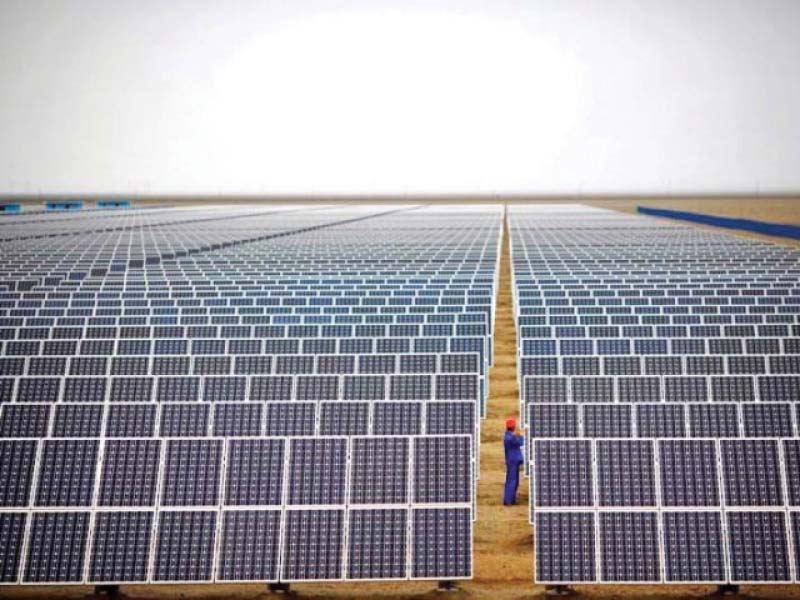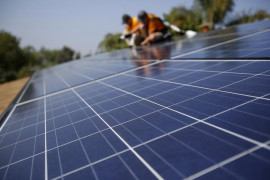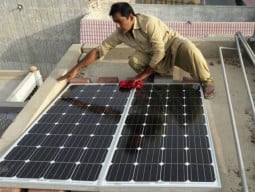
The AEDB board of directors gave the go-ahead in the 41st meeting held under the chairmanship of Federal Minister for Power Division Sardar Awais Ahmad Khan Leghari. Power Division secretary and other members of the board were present in the meeting.
The minister praised AEDB Chief Executive Officer Amjad Ali Awan and his team for their hard work to complete all requirements for facilitating the solar power net metering system and its seamless inclusion in the national grid.
“The move is bound to bring green energy and the biggest renewable electricity source of around 5,000 to 7,000 megawatts can be exploited,” he said.
Balochistan to install 30,000 solar-run tube wells
He emphasised that consumers with the desire to install solar panels with net meters up to 25 kilovolts would be facilitated in installing the system within days compared to the current cumbersome licensing process that took months.
“We are actually bringing on the doorstep the profitable business of electricity generation for everyone,” the minister remarked.
The board discussed matters pertaining to renewable energy projects and initiatives of the government and AEDB to promote renewable energy technologies with special emphasis on the net metering system.
It approved the AEDB (Certification) Regulations 2017 for the certification of installers/vendors of off-grid renewable energy installations.
The board noted that net metering-based applications not only lessen the burden on the national grid, but they also supported the increase in overall generation capacity. This will reduce the fuel import bill, check the emission of greenhouse gases and strengthen the national grid by minimising line losses as well as increasing solar applications.
The board gave directives for initiating a well-planned public awareness campaign so that maximum number of people could take benefit of the scheme.
It also approved the initiation of a scheme for converting all electricity-run tube wells in Balochistan to solar power.
At present, more than 30,000 electricity-powered tube wells with a sanctioned load of more than 480 megawatts are running in the province, which the government is subsidising by providing more than Rs21 billion annually.
Sindh govt making arrangements to install solar panels at 4,000 schools
The board constituted a two-member committee to finalise the PC-I, which had already been prepared by the AEDB, for switching to solar-powered tube wells. The committee will present its report in the next board meeting.
The tube well subsidy constitutes a major part of the circular debt. After switching over to solar power, the burden on the national grid will ease to a certain extent and the subsidy will be phased out, which will significantly reduce the circular debt.
In the first phase, 10,000 solar water pumps will be installed to replace the existing electricity-run tube wells.
The board reaffirmed that it would take proactive steps in consultation with all stakeholders for the promotion and development of alternative and renewable energy technologies in an effort to meet energy requirements and ensure energy security.
Published in The Express Tribune, November 23rd, 2017.
Like Business on Facebook, follow @TribuneBiz on Twitter to stay informed and join in the conversation.












































COMMENTS
Comments are moderated and generally will be posted if they are on-topic and not abusive.
For more information, please see our Comments FAQ